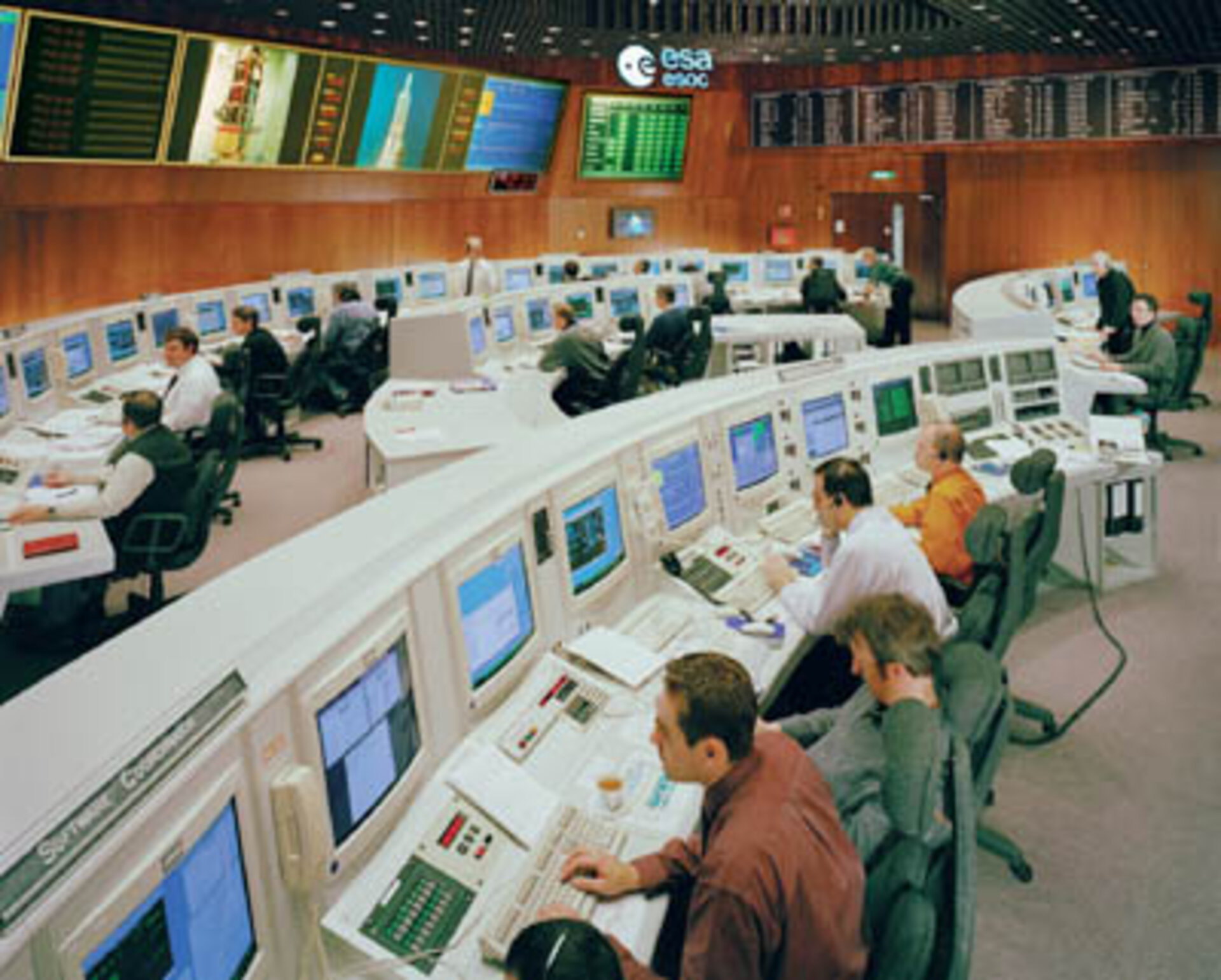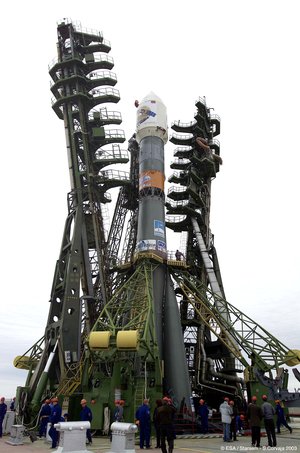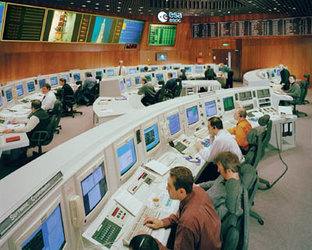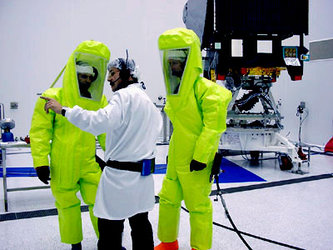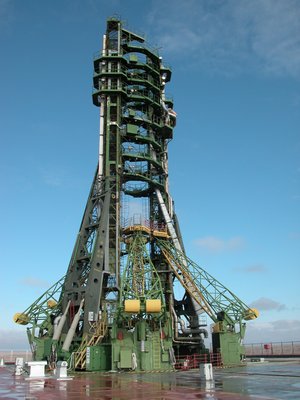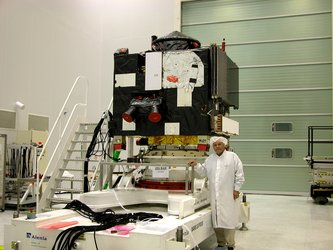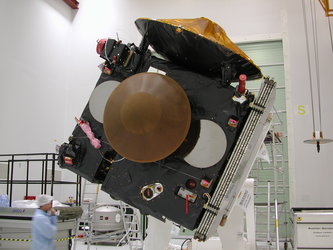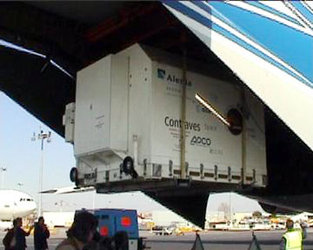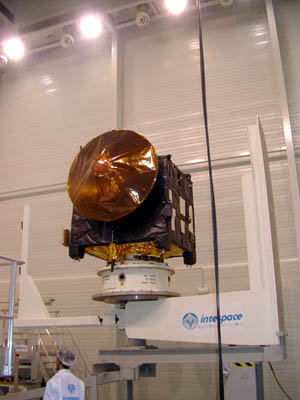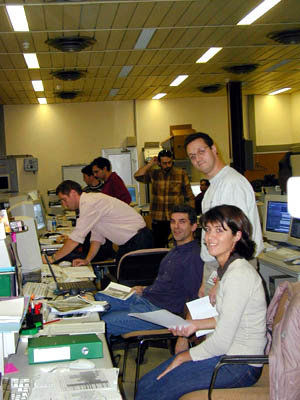Ground control to Mars Express
Mars Express diary 11
With only a few days to go before launch, John Reddy, Principal Electrical Systems Engineer for Mars Express, describes the final preparations on the operations side.
"Operating a spacecraft going to Mars while you are on Earth is like driving the Monte Carlo Rally — by remote control from a locked windowless room! And we also have to buy the car, read the manual, write a series of operations and complete the race without crashing or running out of petrol!
"With the spacecraft being readied for launch at Baikonur, it is easy to forget the intense effort under way to prepare for the flight of the spacecraft after launch.
"Our team at the European Space Operations Centre (ESOC) in Darmstadt, Germany, has been training to 'fly' the spacecraft under realistic conditions and to be ready for any eventuality.
"Spacecraft operations will be conducted by the Flight Control Team (FCT), sitting at rows of consoles in the Mission Control Centre (MCR) from which controllers can send commands and monitor the telemetry from the spacecraft. This team comprises the Spacecraft Operations Manager and a team of engineers, under the direction of Flight Operations Director.
"The team is split into two shifts to provide 24-hour coverage of the spacecraft as it passes first over the ground station at New Norcia, Australia, and then Kourou, French Guiana. They are supported by representatives from the industry and the Project team.
"Training is carried out in a 'Simulations (or SIM) campaign' where the MCR is connected to a 'Spacecraft Simulator' which is able to replicate the behaviour of real spacecraft systems. It accepts commands from the MCR and provides telemetry in the same way that the spacecraft would during flight.
"Simulations are used to train the FCT to react effectively if things go wrong. A typical simulation would concentrate on activities associated with a particular pass (for example, the first acquisition of the spacecraft after launch).
"During one of these simulated passes, the Simulations Officer would introduce failures into the system to allow the FCT to practice recovering from these problems. These are not limited to on-board electronics failures, but also incidents at ESOC, such as a fire alarm in the MCR which might force the entire team to move to an alternative control centre!
"During all these exercises, the teams act as though a real spacecraft is at risk. Sometimes we forget this is a simulation in the intensity of the activities and it is not unusual for meals to be missed during emergencies.
"At the end of the simulation, a debriefing session is held in which everybody involved makes an appraisal of their conduct. These sessions are often quite heated. Every member of the team understands the importance of their role in the success of the Mars Express mission. There is a lot of self-criticism as everyone tries hard to get their contribution right. The SIM campaign is an essential team-building exercise.
"Simulations for the Launch and Early Operations Phase began early this year and are now coming to an end. After the launch on 2 June 2003, similar simulations will be performed for the next important phases of the mission, such as the release of Beagle 2 and the Mars Orbit Insertion manoeuvre.
"But from then on, there are no more simulations. It's for real. We'll be in control of a real spacecraft on its way to Mars — the first European mission to another planet."


